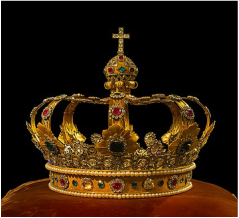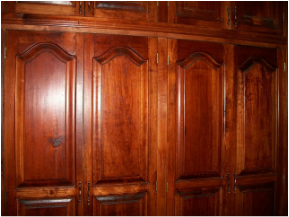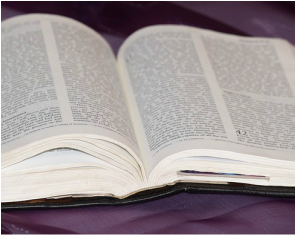|
In today’s lesson, God proclaims judgment on the sons of Josiah for failing to rule in righteousness. Jeremiah Chapter 22 Lessons from the text What Can We Learn from Rulers? Jesus tells us that to whom much is given, of him much is required (Lk. 12:48). While we are all called to live righteously, those who have authority have an extra burden to make righteous judgment and defend the defenseless. Those who rule, make laws, and enforce the laws have the divine task of taking care of the general public and leading their people into righteousness. God says that the rulers who do this will be blessed by God on two fronts; they will maintain their authority on earth and will be blessed with splendor (Jer. 22:4). If they fail to do this, then they will loose their earthly authority and be subject to destruction (Jer. 22:5-7). Consider history. Rulers like Nero, Adolf Hitler, and Stalin, even if they had glory within their own nations, piled up against themselves adversaries, destroyers, and ruin. Their choice to rule in wickedness ultimately led to their downfall. If Adolf Hitler had taken his charisma and the unique social and economic opportunity of his time to perform good, Germany may have become a beautiful, desirable nation instead of acquiring a blemish in its history called Nazi Germany. He could have been hailed as the greatest leader of Europe for being able to restore and magnify a country decimated by World War I. Instead, he pursued selfish, sinful ways that caused the world to turn against him. Like our rulers, if you want to succeed, do it by righteous means. If you are an employer or even a parent, treat those under your charge with justice, dignity, and grace. This will spur them to respect and even love you. In addition, such a life style is one which God can bless. So, if you want to be loved, praised, and respected, simply rule in righteousness and you will gain favor both with man and God. Verse by Verse Commentary 1-5 There is not a specific time frame given for this chapter, but the message is proclaimed during Jehoiakim’s reign (v. 18). Kings are to judge in righteousness. If they do so, their lines will continue. Failure to obey this command means that the king is judging as wicked, thus incurring the wrath of God. (II Chro. 7:17-22) 6-9 Gilead is the grandson of Mannasseh. It is also the place where Gad, Rueben, and the half tribe of Manasseh settled when Moses brought Israel out of Egypt and represents a place to be desired in the eyes of the people. The forest of Lebanon has the oldest, largest trees and is used in Scripture to represent splendor. Therefore, the point is that despite the allure and splendor of Jerusalem, because of their sins God will destroy the city. 10 God commands one to not weep over the judgment of God on the wicked. While one is to have compassion on those lost to sin, one is not to side with them by thinking they have been treated unfairly or harshly by God. The Lord is righteous and as such He will enact vengeance on the wicked. One is therefore to praise the ways of God rather than consider the plight of man. 11-12 Josiah’s sons were, in order of birth, Johanan (Jehoahaz), Jehoiakim (Eliakim), Zedekiah, and Shallum (I Chro. 3:15). Shallum will be taken away to Babylon and die there in judgment for his sins. 13-14 One can gain riches in this life, but if they are gained by wicked means, then they will heap up wrath for the day of judgment. Noteworthy is that God views cheating a worker out of his wages as sin. Cedar is the most expensive and most desired wood with which to build and vermillion is a red pigment. 15-16 The riches of this would are not a shelter from the wrath of God. If one has gained one’s material wealth through unrighteous means, then even if one appears to be the wealthiest, most splendid person outwardly, God has the authority to strip one of one’s power in this life. On the other hand, if one humbles oneself and seeks after righteousness, then God will allow one to maintain one’s authority in this life as well as receive the blessings of material goods. The point is, one should attain power and wealth by righteous means with a heart which desires to draw closer to God. 17-19 Jehoiakim has failed to live by God’s standard. He has attained his wealth by shedding innocent blood, oppressing the poor, and violently pursuing his lusts. Therefore, when he dies, no one will mourn for him (see also II Ki. 24:4). Jehoiakim may have enjoyed his abuse of power, but it also makes him devoid of friends and sympathizers. When he dies, no one will respect him enough to give him a proper burial. According to II Chronicles, Jehoiakim is taken by Nebuchadnezzar to Babylon in the first deportation and therefore dies beyond the gates of Jerusalem (36:5-7). 20 God tells the Jews to lament for their lovers. These are the idols they have worshipped as well as the nations they have looked to for prosperity (such as Egypt). Whatever one puts before God is an idol and, in the eyes of God, a lover you have chosen over Himself. That is, instead of being filled with a love for God, one is filled with a love for riches, pleasure, and/or false gods. In the end, these other “lovers” will be destroyed; only the love for God endures. 21 This verse is applicable to Jehoiakim, individual Jews, and the Jewish nation. From the origins of the nation when God brought them out of Egypt, God has given Israel instruction through the Law and prophets. Nonetheless, they have continually rebelled (Num. 16:1-3, 42, Jdg. 2:10-19, II Ki. 17:19-23). Furthermore, Jeremiah began preaching during Josiah’s thirteenth year, making Jehoiakim seven years old at the time (Jer. 1:2, II Ki. 22:1, 23:36). The point is that the Jews have rebelled from their childhood upwards, always refusing to submit to the righteousness of God. 22 The people refused to listen to God when they were blessed by Him, so He is going to allow them to reap the consequences for wickedness which is destruction. When they realize that the path they have chosen brings them harm, then they will be ashamed of their choices. 23 Despite all the sins and destruction that comes as a result of sin, the people still view themselves as lofty. The trouble that God will send to them is not to bring them to complete destruction; the pain they will endure is temporary to bring forth a new child. A new generation of believers will emerge from the tribulations and trials. 24-26 One’s rank or social status will not spare one from the judgment of God. Noteworthy is that this includes divinely ordained offices; a signet was worn as an emblem of authority or position. Even those who have been divinely placed by God can be “plucked up” (or caste away) because of sin. 27 Even when the Jews desire to return, they will not be able to do so. God has decreed that they will be in captivity for seventy years (Jer. 25:11), and they will not return one year sooner. 28 As a prince, Coniah should have received great honor. Nonetheless, because of his sins, he will be cast out. This is reminiscent of Jeremiah’s sermon concerning the potter and the clay (Jer. 18:1-10). 29-30 God wants the Jews and all the earth to hear His prophecies so that when they are fulfilled, all may acknowledge that He is the true God. This is an extension of grace; God is giving all humans the chance to know Him by the spreading of His word. This specific prophecy is fulfilled in that the normal line of kings is broken after Jehoahaz; the rightful heirs from that point onward are taken captive, first to Egypt and then to Babylon. Instead of sons, brothers are left to rule in Judah until the final destruction of the city. ___________________ Thank you for your faithfulness in studying God’s word. Please comment below to share what you learned from today's lesson.
0 Comments
Leave a Reply. |
Devotional Categories
All
Archives
September 2023
|
|
Join my mailing list!
|
Thank you!You have successfully joined our subscriber list. |
|
© 2024 Melissa Beaty
|
